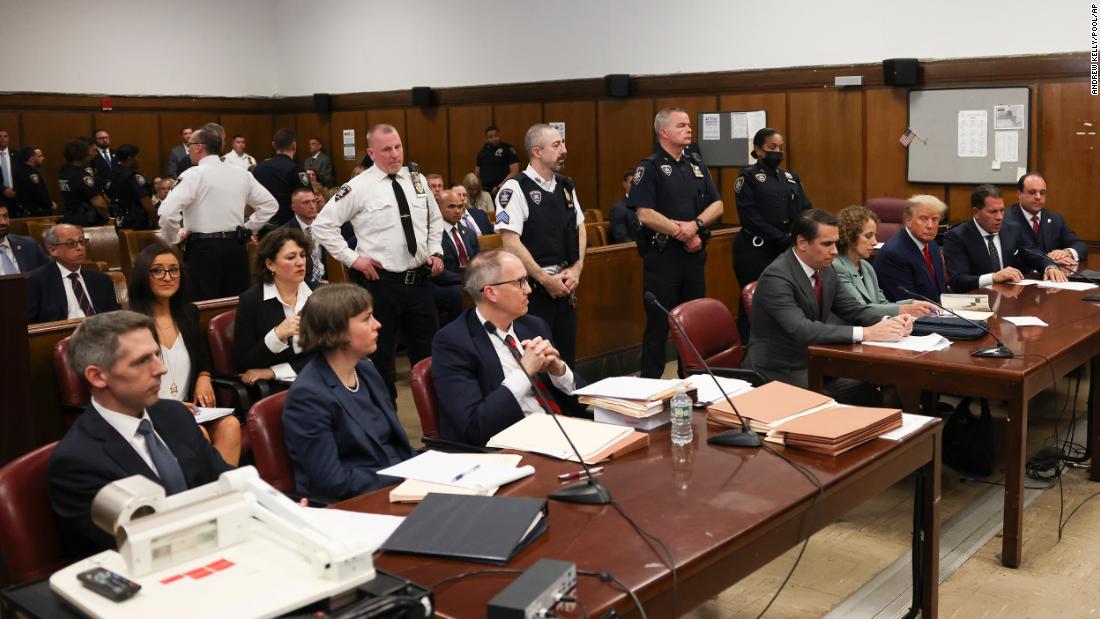United States, Pacific island nations cap summit with declaration of partnership
U.S. announces boost in aid to island nations as it seeks to counter China’s increased influence in the region.

Updated at 11:19 p.m. ET on 2022-09-29
The United States and Pacific Island nations signed a declaration of partnership, capping a summit in Washington with a win for the U.S. in the region after countries rejected China’s push for a wide-ranging pact earlier this year.
The declaration is part of a flurry of announcements by President Joe Biden’s administration during the two-day summit, as the U.S. seeks to counter China’s greater influence in the Pacific. The announcements included plans for more than U.S. $800 million in assistance to the small island nations over a decade, the White House said Thursday.
Signatories to the declaration included Solomon Islands Prime Minister Manasseh Sogavare, whose government in April signed a secret security pact with Beijing. Sogavare had reportedly initially opposed the joint declaration.
“In the face of a worsening climate crisis and an increasingly complex geopolitical environment, we recommit ourselves to working together in genuine partnership to address the mounting challenges of our time,” said the declaration, released by the White House on Thursday.
The document condemned Russia’s “brutal” invasion of Ukraine. It said the signatory countries are committed to maintaining peace and security in the Pacific and that they recognize the importance of freedom of navigation and overflight under international law. The United States, the declaration said, is committed to the removal of unexploded munitions in the Pacific left over from World War II and to addressing the legacy of U.S. nuclear testing in the Marshall Islands.
The summit is meant to show a deeper U.S. commitment to the vast and economically lagging Pacific region, which over the past two decades has increasingly turned to China to meet its development needs, officials and analysts said.
Concerns in Washington about China’s influence in the region were amplified after Beijing inked a security pact with the Solomons Islands five months ago. But Beijing’s effort to sign a comprehensive pact with 10 Pacific nations to shape relations was rebuffed.
“A great deal of the history of our world is going to be written in the Indo-Pacific over the coming years and decades, and the Pacific islands are a critical voice in shaping that future,” Biden said during the second day of the meetings.
“That’s why my administration has made it a priority to strengthen our partnership with your countries and with the Pacific Islands Forum.”
Biden said that the close to U.S. $1 billion in new commitments in aid include U.S. $130 million to support “climate resilience” among the Pacific islands economies and disaster early-warning systems.
“We’re seeing the consequences of climate change around the world very vividly, including in the United States right now,” he said, referring to Hurricane Ian, “and I know your nations feel it acutely, and for you all it’s an existential threat.”
The aid package requires approval from Congress and includes a previously flagged U.S. $600 million of economic assistance tied to a U.S. tuna treaty with Pacific nations that gives fishing rights to American vessels.
The summit with Pacific island states was the first hosted by the White House and includes the leaders of the Cook Islands, Federated States of Micronesia, Fiji, French Polynesia, Papua New Guinea, the Marshall Islands, New Caledonia, Samoa, the Solomon Islands, Tonga and Tuvalu, as well as officials from Nauru, Palau and Vanuatu.
Fiji’s Prime Minister Frank Bainimarama praised the meeting, as well as Biden’s focus on combating climate change.
“Our Blue Pacific is an oceanic superpower that belongs side-by-side with America, the world’s mightiest military and economic power,” Bainimarama said in a tweet. He posted a selfie of himself with Biden in the Oval Office on Twitter.

Earlier on Thursday, the White House released a Pacific strategy document that echoes many of the issues Pacific nations have called attention to, including the threat of rising sea levels and illegal fishing, as well as information about U.S. aid plans.
Among the commitments, USAID will establish a regional mission in Fiji by September next year. Another development agency, Peace Corps, will return to the region, starting with Fiji, Tonga, Samoa and Vanuatu.
The Pacific strategy document reiterated that the United States intends to open an embassy in the Solomon Islands, its first there since the early 1990s. It will also begin discussions with other Pacific countries including Tonga and Kiribati about opening embassies.
The United States says it currently has six embassies in the region.
This story has been updated to include details from the second day of the summit.
BenarNews is an RFA-affiliated news service.













